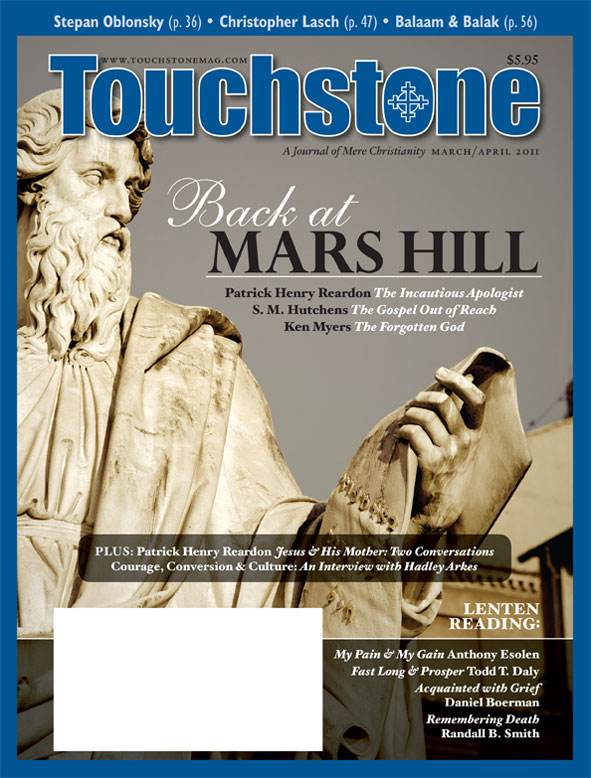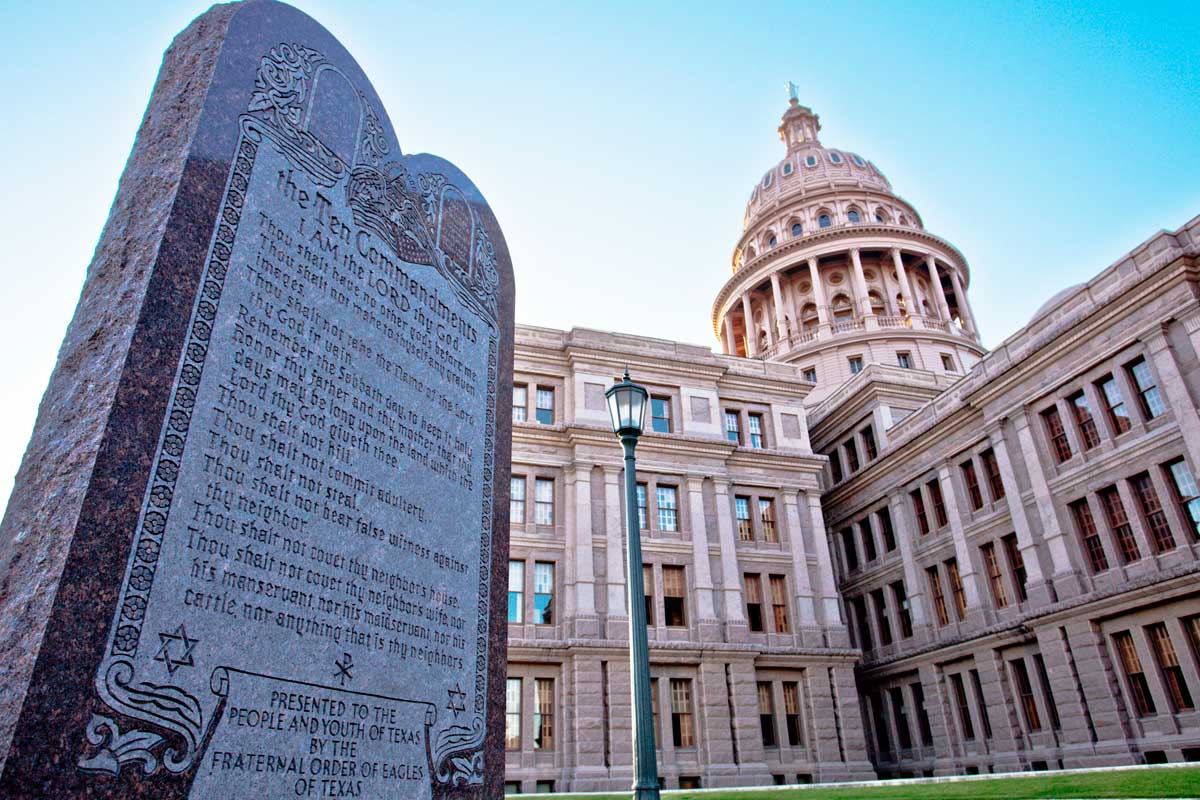The Talk of Cana & Jerusalem
What We Can Learn from Two Conversations Between Jesus & His Mother
by Patrick Henry Reardon
I believe it significant that the evangelist Luke, affirming that “Jesus increased in wisdom,” placed that affirmation immediately after a revealing comment about Mary: “His mother continued to keep all these things in her heart” (2:51–52).
There is a subtle hint in this juxtaposition: Luke seems to imply that the sustained contemplation in Mary’s heart was in some way related to her son’s increase in wisdom. The author suggests here a provocative picture of the home in Nazareth, where Jesus and his mother, joined in a common faith during those decades of their shared life, continued to mature spiritually in one another’s company.
Given the delicacy of this subject, of course, it is important not to sail off into speculations beyond the data provided by Holy Scripture. Does the Bible give any sign of this personal and interpersonal growth of Jesus and his mother? As it touches their relationship—especially their shared faith in the Father’s purpose and the mission of the Holy Spirit—is it possible to discern in the relevant biblical texts some indication of this spiritual development? I believe it is.
Two Conversations
It is reasonable to start with the only two conversations between Jesus and his mother recorded in the Bible. The first, narrated by Luke (2:41–52), took place in the Temple, when Jesus was twelve years old—the incident when he was lost in Jerusalem for three days and then was found. The second conversation, reported by John (2:1–11), happened at the wedding feast in Cana of Galilee, apparently when Jesus was about thirty years old (cf. Luke 3:23). According to this second story, Mary approached her son—now a mature man—with an implied request on behalf of some embarrassed newly-weds. Both stories are well known to readers of the Gospels, so neither needs to be repeated here in detail.
Since I propose to compare these two Gospel accounts, which describe events roughly eighteen years apart, I first mention the reliability of these first-hand sources, in order to establish the historicity of the two occasions. Luke’s source for the first story was, it would appear, Mary herself, whereas in the second instance, John mentions several witnesses, any of whom may have been his source. It is arguable, moreover, that John’s accout of the event at Cana came from his personal memory of it (John 2:2,11).
As we compare these two stories, it is important not to overlook a basic fact, which, though almost too obvious at first, is actually a bit subtle in its significance: each narrative comes down to us from a different author. That is to say, the narrative elements we may find common to the two accounts are not derived from the thematic perspective of a single writer. The similarities between them are rooted, not in a unified literary presentation, but in the recollection of real historical events.
Indeed, with respect to each author’s theological intent, the two stories are very different: Luke, along with his pervading and characteristic interest in the symbolism of the Temple, tells the story of Jesus in the Temple in specific language (for example, “third day”) he will later take up in his account of the Lord’s Resurrection. In this respect, it is important to observe that Luke introduces this conversation between Jesus and Mary by placing it at the Passover (Luke 2:41), the very time of the Resurrection.
John, on the other hand, is preoccupied with a theological motif of his own: the seven “signs” used to provide the narrative structure to Jesus’ public ministry. The wedding feast at Cana is the first of these signs (John 2:11).
Patrick Henry Reardon is pastor emeritus of All Saints Antiochian Orthodox Church in Chicago, Illinois, and the author of numerous books, including, most recently, Out of Step with God: Orthodox Christian Reflections on the Book of Numbers (Ancient Faith Publishing, 2019).
subscription options
Order
Print/Online Subscription

Get six issues (one year) of Touchstone PLUS full online access including pdf downloads for only $39.95. That's only $3.34 per month!
Order
Online Only
Subscription

Get a one-year full-access subscription to the Touchstone online archives for only $19.95. That's only $1.66 per month!
bulk subscriptions
Order Touchstone subscriptions in bulk and save $10 per sub! Each subscription includes 6 issues of Touchstone plus full online access to touchstonemag.com—including archives, videos, and pdf downloads of recent issues for only $29.95 each! Great for churches or study groups.
Transactions will be processed on a secure server.
more from the online archives

28.3—May/June 2015
Of Bicycles, Sex, & Natural Law
Describing Human Ends & Our Limitations Is Neither Futile Nor Unloving by R. V. Young
calling all readers
Please Donate
"There are magazines worth reading but few worth saving . . . Touchstone is just such a magazine."
—Alice von Hildebrand
"Here we do not concede one square millimeter of territory to falsehood, folly, contemporary sentimentality, or fashion. We speak the truth, and let God be our judge. . . . Touchstone is the one committedly Christian conservative journal."
—Anthony Esolen, Touchstone senior editor








